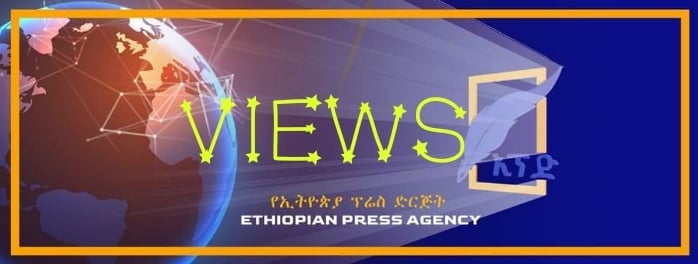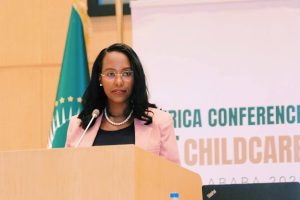
The Berlin Conference is an unforgettable incident that has left a scar on African countries. The Conference which is commonly known as the Scramble for Africa (1884–1885) marked the highest peak of the European competition for territory in Africa. During the 1870s and early 1880s, European nations started to look into Africa in their search for natural resources for their growing industrial sectors and potential market for the goods these factories produced.
Nevertheless, it had a lasting negative impact on the nations of Africa. They lost the ability to govern their own people and develop their economies. African natural resources were essentially stolen from them for the betterment of the colonial powers.
Stephen Ocheni and Basil C. Nwankwo (2012), in their academic article entitled “Analysis of Colonialism and Its Impact in Africa” specified that colonialism, followed by the Berlin Conference, is the direct and overall control of one country by another state with the aim of political domination. The goal is to make possible the exploitation of the colonized country.
However, the people of Africa, after various struggles and sacrifices, got independence. Yet they couldn’t be totally free due to neocolonialism. Because today those colonialists want to impose their political and economic interests and intervene in the internal affairs of African nations under the name of democracy and human rights abuses.
This has been vividly observed when, on Friday, Dec. 17, 2021, UN Human Rights Council had a special session on “the human rights situation in Ethiopia”, at the European headquarters of the United Nations in Geneva, Switzerland. A resolution, brought by the European Union and backed by Western states, passed despite objections from Ethiopia.
Many Western countries try to set up an international team of experts to investigate the situation while the group of African countries had called for the resolution to be rejected, saying that the proposed investigative mechanism was “counterproductive and likely to exacerbate tensions.
In fact, during the Council meeting, the vote at the 47-member forum in Geneva was 21 states in favour, 15 against, and 11 abstentions. 26 countries are against and abstain from the Resolution. This needs a response to the question of what is democracy? Because it is not possible to interfere in Ethiopia under the name of a simple majority?
According to Government Communication Service State Minister Selamawit Kassa, the whole process of the meeting was an attempt to intervene in the internal affairs of Ethiopia and used to facilitate conditions for their own agenda.
It is true that the government of Ethiopia has set up an Inter-Ministerial Task Force to oversee redress and accountability measures in response to human rights violations committed in the context of the conflict in northern Ethiopia. Instead of supporting, monitoring, observing and working with the Taskforce, the UN Human Rights Council deed was unfair and unjust.
As said by the Ethiopian Ministry of Foreign Affairs, Ethiopia is extremely disappointed to have witnessed once again the use of the Human Rights Council by some to advance their politically motivated agenda.
Because this is also done against the recommendations by the Ethiopian Human Rights Commission which were submitted to the President of the Human Rights Council on 14 December 2021 and to all members of the Council requesting it to unequivocally support the implementation of the Joint Investigation Team’s recommendations, the work of the Inter-Ministerial Task Force and for the OHCHR and the EHRC to continue with further joint investigations. Besides, the action by some in the Council is an attempt to find an alternative way of meddling in the internal affairs of a sovereign state and serves no purpose except exacerbating the situation on the ground.
The famous Berlin conference in 1884-85 on Africa under the name of “to bring civilization in the continent” was held with no single representative from Africa. It was an initiative to legitimate the colonization of Africa. Now after 136 years with a desire to repeat history, a conference has been held in Africa /Ethiopia. It has been called out with no representative from the concerned one. Here we go again! History has it well recorded.
This shows that Africa must stop the neocolonialism agenda since neocolonialism is the control of less-developed countries by developed countries through indirect means such as aid, naming and shaming over Human rights abuses as well as democracy.
In fact, Africa needs assistance. However, it should be agreed in such a way that benefits Africa. The goal of development would be to have Africa dependent upon themselves for their affairs but in an interdependent relationship with the international community for economic.
Most importantly, African nations must escape neocolonialism by having a strong central government, reducing export dependence and uniting themselves. They have to build solidarity and togetherness among the entire population which is important to say “no more” to foreign intervention as it has been observed during the meeting of the UN Human Rights Council.
African nations should say also no more to neocolonialism to avoid the consequences of the Berlin Conference and to resolve African problems by the Africans themselves as they did in the time of fighting for independence.
Editor’s Note: The views entertained in this article do not necessarily reflect the stance of The Ethiopian Herald
How the UNHRC repeated the Berlin Conference
The Berlin Conference is an unforgettable incident that has left a scar on African countries. The Conference which is commonly known as the Scramble for Africa (1884–1885) marked the highest peak of the European competition for territory in Africa. During the 1870s and early 1880s, European nations started to look into Africa in their search for natural resources for their growing industrial sectors and potential market for the goods these factories produced.
Nevertheless, it had a lasting negative impact on the nations of Africa. They lost the ability to govern their own people and develop their economies. African natural resources were essentially stolen from them for the betterment of the colonial powers.
Stephen Ocheni and Basil C. Nwankwo (2012), in their academic article entitled “Analysis of Colonialism and Its Impact in Africa” specified that colonialism, followed by the Berlin Conference, is the direct and overall control of one country by another state with the aim of political domination. The goal is to make possible the exploitation of the colonized country.
However, the people of Africa, after various struggles and sacrifices, got independence. Yet they couldn’t be totally free due to neocolonialism. Because today those colonialists want to impose their political and economic interests and intervene in the internal affairs of African nations under the name of democracy and human rights abuses.
This has been vividly observed when, on Friday, Dec. 17, 2021, UN Human Rights Council had a special session on “the human rights situation in Ethiopia”, at the European headquarters of the United Nations in Geneva, Switzerland. A resolution, brought by the European Union and backed by Western states, passed despite objections from Ethiopia.
Many Western countries try to set up an international team of experts to investigate the situation while the group of African countries had called for the resolution to be rejected, saying that the proposed investigative mechanism was “counterproductive and likely to exacerbate tensions.
In fact, during the Council meeting, the vote at the 47-member forum in Geneva was 21 states in favour, 15 against, and 11 abstentions. 26 countries are against and abstain from the Resolution. This needs a response to the question of what is democracy? Because it is not possible to interfere in Ethiopia under the name of a simple majority?
According to Government Communication Service State Minister Selamawit Kassa, the whole process of the meeting was an attempt to intervene in the internal affairs of Ethiopia and used to facilitate conditions for their own agenda.
It is true that the government of Ethiopia has set up an Inter-Ministerial Task Force to oversee redress and accountability measures in response to human rights violations committed in the context of the conflict in northern Ethiopia. Instead of supporting, monitoring, observing and working with the Taskforce, the UN Human Rights Council deed was unfair and unjust.
As said by the Ethiopian Ministry of Foreign Affairs, Ethiopia is extremely disappointed to have witnessed once again the use of the Human Rights Council by some to advance their politically motivated agenda.
Because this is also done against the recommendations by the Ethiopian Human Rights Commission which were submitted to the President of the Human Rights Council on 14 December 2021 and to all members of the Council requesting it to unequivocally support the implementation of the Joint Investigation Team’s recommendations, the work of the Inter-Ministerial Task Force and for the OHCHR and the EHRC to continue with further joint investigations. Besides, the action by some in the Council is an attempt to find an alternative way of meddling in the internal affairs of a sovereign state and serves no purpose except exacerbating the situation on the ground.
The famous Berlin conference in 1884-85 on Africa under the name of “to bring civilization in the continent” was held with no single representative from Africa. It was an initiative to legitimate the colonization of Africa. Now after 136 years with a desire to repeat history, a conference has been held in Africa /Ethiopia. It has been called out with no representative from the concerned one. Here we go again! History has it well recorded.
This shows that Africa must stop the neocolonialism agenda since neocolonialism is the control of less-developed countries by developed countries through indirect means such as aid, naming and shaming over Human rights abuses as well as democracy.
In fact, Africa needs assistance. However, it should be agreed in such a way that benefits Africa. The goal of development would be to have Africa dependent upon themselves for their affairs but in an interdependent relationship with the international community for economic.
Most importantly, African nations must escape neocolonialism by having a strong central government, reducing export dependence and uniting themselves. They have to build solidarity and togetherness among the entire population which is important to say “no more” to foreign intervention as it has been observed during the meeting of the UN Human Rights Council.
African nations should say also no more to neocolonialism to avoid the consequences of the Berlin Conference and to resolve African problems by the Africans themselves as they did in the time of fighting for independence.
Editor’s Note: The views entertained in this article do not necessarily reflect the stance of The Ethiopian Herald
BY EPHREM ANDARGACHEW
THE ETHIOPIAN HERALD DECEMBER 21/2021



